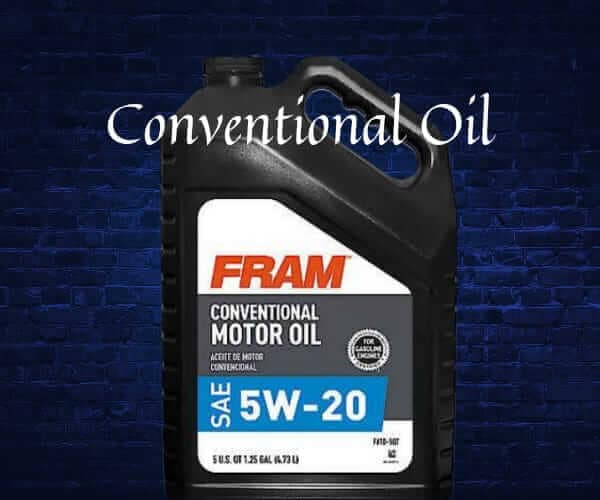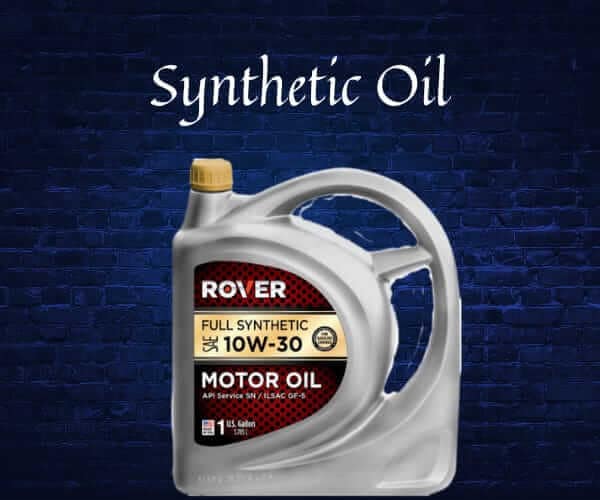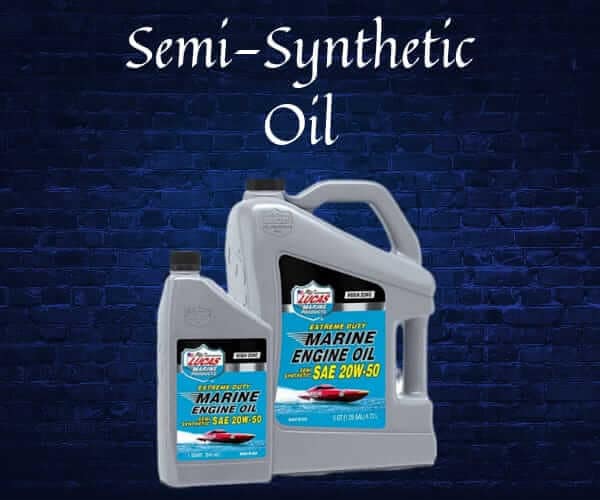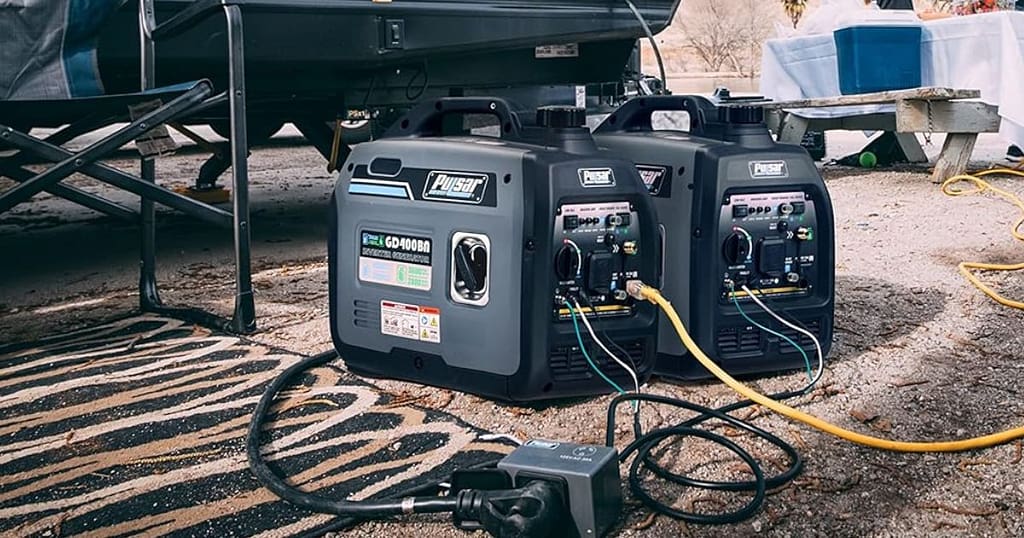Generators are essential machines for providing backup power during power outages or when electricity is not available. However, like any other machine, generators require proper maintenance to function efficiently and effectively.
One aspect of generator maintenance is an oil change. Oil is essential for lubricating the generator’s moving parts, preventing wear and tear, and ensuring smooth operation. However, some generator owners may wonder whether they can use any oil in their generators. In this blog post, we will explore oil types and usage in generators.
Can I Use Any Oil in My Generator?
The short answer to this question is no; you cannot use any oil in your generator. Generators require specific types of oil that are formulated to meet their operational needs. Using the wrong type of oil can damage your generator, reduce its lifespan, and cause it to malfunction. Therefore, it is essential to understand the different types of oils and their specific applications before adding oil to your generator.
Types of Generator Oils
1. Conventional Oil

Oil is a vital component of many engines, including generators, as it provides lubrication and helps to reduce friction, wear, and corrosion. Conventional oil, as the name implies, is the standard oil that has been used for many years in various applications, including generators. It is derived from crude oil and is processed to remove impurities and other unwanted substances.
Conventional oils have a long history of use and are widely available, making them an economical choice for many consumers. They contain additives that help to enhance their performance, including reducing engine wear, corrosion, and deposits. These additives can also help to improve the oil’s viscosity and resistance to thermal breakdown, making it more effective in lubricating the engine’s moving parts.
When it comes to generators, conventional oils are particularly well-suited for use in moderate temperatures. They provide good protection and lubrication in a wide range of operating conditions, making them an excellent choice for many applications. Additionally, they can be used in a variety of engines, from older, low-mileage models to newer, high-performance engines.
Despite their many benefits, conventional oils do have some drawbacks. They are not as effective as synthetic oils in extreme temperatures or under heavy loads, and they tend to break down more quickly than synthetic oils. However, for most consumers, conventional oils provide a cost-effective and reliable solution that can help to keep their engines running smoothly and efficiently.
In conclusion, conventional oil is a tried-and-true solution that has been used for many years in various applications, including generators. It is affordable, widely available, and works well in moderate temperatures, making it an excellent choice for many consumers. While it may not be as effective as synthetic oils in extreme conditions, it remains a reliable and cost-effective solution that can help to keep engines running smoothly and efficiently.
2. Synthetic Oil

Synthetic oil is a specially formulated lubricant that is manufactured using a complex chemical process. Unlike conventional oils, which are derived from crude oil, synthetic oils are made from a mixture of specially designed chemical compounds that are engineered to provide superior performance in extreme temperatures.
One of the primary benefits of synthetic oil is its ability to maintain its viscosity and flow characteristics even under high-temperature conditions. This means that synthetic oil can withstand extreme heat and cold temperatures without breaking down or becoming too thick or thin to provide adequate lubrication.
Synthetic oils also have a higher viscosity index than conventional oils. The viscosity index refers to a fluid’s resistance to changes in viscosity due to changes in temperature. The higher the viscosity index, the less a fluid’s viscosity changes with temperature. This property of synthetic oils makes them ideal for use in high-performance engines that operate at high speeds and high temperatures.
In addition to their superior performance characteristics, synthetic oils also offer longer service life. Because they are formulated to resist breakdown and maintain their lubricating properties for longer periods of time, synthetic oils can provide up to three times the service life of conventional oils. This can result in longer oil change intervals and lower overall maintenance costs.
Despite their higher cost, synthetic oils are becoming increasingly popular among vehicle owners and operators who demand the highest level of performance and protection for their engines.
Whether you are driving a high-performance sports car, heavy duty generator or stand by generator, synthetic oils can provide the performance and protection. This keeps the generator’s engine running smoothly and efficiently for a long time go.
3. Semi-Synthetic Oil

Semi-synthetic oil, also known as synthetic blend oil, is a mixture of conventional oil and synthetic oil. The combination of the two oils creates a lubricant that offers the benefits of both types of oils, making it a popular choice among vehicle owners and operators.
Conventional oils are made from crude oil and are generally less expensive than synthetic oils. They are suitable for use in moderate temperature conditions and provide adequate lubrication for most applications but their performance deteriorates in extreme temperatures. On the other hand, synthetic oils are manufactured using specially designed chemical compounds and can withstand high temperatures and provide superior performance in extreme conditions.
By blending conventional and synthetic oils, semi-synthetic oils offer the benefits of both oils. They provide better protection in high-temperature conditions than conventional oils, but are less expensive than fully synthetic oils.
The blending process involves adding a percentage of synthetic oil to conventional oil. The percentage of synthetic oil in the blend can vary, and this is often determined by the intended use of the oil. In general, semi-synthetic oils contain between 10% to 30% synthetic oil, although some blends can have a higher percentage of synthetic oil.
Semi-synthetic oils are suitable for generators that operate in moderate to high-temperature conditions. They provide improved wear protection, better fuel economy, and reduced emissions compared to conventional oils. Additionally, they can offer longer service life than conventional oils, although not as long as fully synthetic oils.
In terms of cost, semi-synthetic oils are more expensive than conventional oils, but less expensive than fully synthetic oils. This makes them a popular choice for vehicle owners and operators who want the benefits of synthetic oil without the high cost.
Choosing the Right Oil for Your Generator
Choosing the right oil for your generator is important so that it can run smoothly and efficiently. The best way to know which oil is suitable for your generator is to check the owner’s manual. The manual will specify the type of oil and viscosity rating that your generator needs.
Viscosity Rating
Viscosity is a fundamental property of fluids that describes their resistance to flow. In simpler terms, viscosity refers to the thickness or “stickiness” of a fluid, and it can have a significant impact on the performance of mechanical systems that rely on lubrication, such as engines and gearboxes.
The viscosity rating of oil is a standardized system used to describe how thick or thin the oil is at different temperatures. The rating system consists of a two-digit number followed by the letter “W,” which stands for “winter.” The first number before the W indicates the oil’s viscosity at low temperatures, while the second number after the W indicates the oil’s viscosity at high temperatures.
At low temperatures, oils with a higher viscosity rating will flow more slowly than those with a lower rating. This is because the molecules in the oil are more tightly packed together, creating a thicker, more viscous fluid. In contrast, oils with a lower viscosity rating will flow more easily at low temperatures, as the molecules are less tightly packed and the fluid is less viscous.
At high temperatures, the opposite is true: oils with a higher viscosity rating will flow more easily than those with a lower rating. This is because the heat causes the molecules in the oil to expand and move around more, reducing the viscosity of the fluid. Oils with a lower viscosity rating will be thinner and flow more quickly at high temperatures, as the molecules are already moving around more freely.
Choosing the right viscosity rating for your oil is crucial for maintaining optimal performance in your engine or gearbox. A lower viscosity rating may be better for engines that operate in colder climates or during winter months, as it will allow the oil to flow more easily at lower temperatures. On the other hand, a higher viscosity rating may be better for engines that operate in hot climates or for heavy-duty applications, where thicker oil can provide better protection and lubrication.
Conclusion
In summary, it is not advisable to use any oil in your generator. Generators require specific types of oil that are formulated to meet their operational needs. Using the wrong type of oil can damage your generator and cause it to malfunction. Therefore, it is essential to understand the different types of oils and their specific applications before adding oil to your generator.
The best way to know which oil is suitable for your generator is to check the owner’s manual. It will specify the type of oil and viscosity rating that your generator needs. By following these guidelines, you can ensure that your generator runs smoothly and efficiently for years to come.





